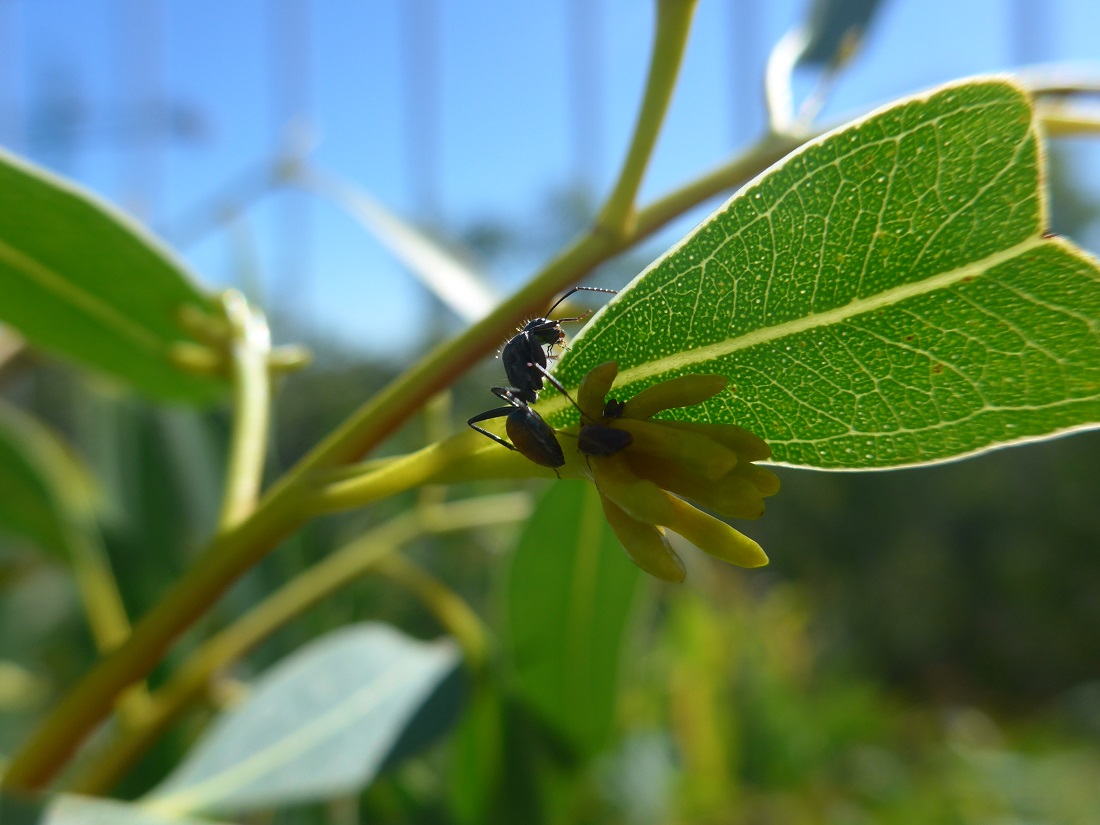PhD defence by Bruna Marques dos Santos
It is with great pleasure we announce the PhD defence of Bruna Marques dos Santos.
 All are welcome!
All are welcome!
Title: A volatile time for forests: Eucalyptus specialized metabolism in a changing environment
Summary:
Forest ecosystems have huge potential to mitigate the effects of climate change by removing large quantities of atmospheric carbon dioxide (CO2) and ozone (O3). However, environmental changes threaten these valuable ecosystems and trees must adapt rapidly in order to survive. Specialized metabolites are essential for plant adaptation, as they moderate interactions with the environment and combat biotic and abiotic stresses. Eucalyptus is a diverse genus of long-lived trees, comprising of approximately 800 different species. The majority of species are native to the Australian continent, where they dominate a wide range of different forest ecosystems including temperate, alpine and arid zones. Moreover, Eucalyptus plantations cover extensive areas globally producing valuable biomaterials. While significant advances have been made towards identifying different chemical constituents within this genus, the effects of elevated CO2 and O3 are less understood. This thesis aimed to investigate how elevated CO2 and O3 affect the concentration of Eucalyptus specialized metabolites, specifically by examining the response of different volatile and non-volatile components; from seedlings to adult trees, and from the glass house to the field. Collectively, the data presented in this thesis show that CO2 and O3 differentially affect the various classes of specialized metabolites, whereby the chemical response was highly dependent on the species, individual metabolite, treatment, temporal regulation and season.  The qualitative and quantitative variation observed in Eucalyptus trees under elevated CO2 and O3 may have significant ecological implications such as plant herbivore interactions and plant-plant communication. Overall, this thesis provides unique insight into the chemical complexity, multiple functionality and regulative mechanisms of Eucalyptus specialized metabolism. The findings of this work provide valuable information to improve atmospheric chemistry models and shed light on how climate change can affect the carbon budget of Eucalyptus forests. Furthermore, this research has generated knowledge that can inform climate change policymakers and contribute towards conserving our global forests and their biodiversity for generations to come.
The qualitative and quantitative variation observed in Eucalyptus trees under elevated CO2 and O3 may have significant ecological implications such as plant herbivore interactions and plant-plant communication. Overall, this thesis provides unique insight into the chemical complexity, multiple functionality and regulative mechanisms of Eucalyptus specialized metabolism. The findings of this work provide valuable information to improve atmospheric chemistry models and shed light on how climate change can affect the carbon budget of Eucalyptus forests. Furthermore, this research has generated knowledge that can inform climate change policymakers and contribute towards conserving our global forests and their biodiversity for generations to come.
Supervisors
Professor Birger Lindberg Møller, University of Copenhagen
Assistant Professor Elizabeth H. J. Neilson, University of Copenhagen
Assessment committee
Associate Professor Meike Burow, University of Copenhagen, Denmark (Chair)
Professor Ian Woodrow, University of Melbourne, Australia
Associate Professor Robert Junker, Philipps-University Marburg, Germany.
Reception afterwards in the 117 rooms
